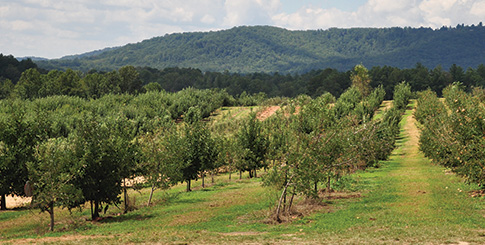Doug Sutton, market manager of the Western North Carolina Farmers Market in Asheville, NC is well aware of the challenges facing his wholesalers. About six years ago, he says, a wholesaler on the market could reap $11 million in yearly business. Today, due to stricter food safety requirements and other factors including consolidation, earnings have fallen to about $7 million a year.
“Customers have gone directly to large growers and bypassed us,” Sutton contends. The good news, however, is the evolving market itself and its many players. “We’re on the fringe,” he admits, but “working with more of the small independents.”
“Most of my customers are ethnic groups, wholesalers,” explains Kevin Sikorski, president of Farmers Friend, Inc., a Raleigh brokerage. “They’re loyal and an important buying segment.” But with recent ups and downs, not all buyers fall into this category when it comes to price. Some buyers will turn to anyone when prices fall but his loyal customers, however, “will call when the price is $4 or $40.”
Better news is the vibrant restaurant scene. Asheville, home to a popular downtown river walk, teems with residents and visitors. Fortunately, what Asheville’s wholesalers may lack with larger retailers, they make up with restaurants, Sutton says. “We probably have more restaurants per capita than any other area of the state.”
Unfortunately, not every metro area’s success is carrying over to the wholesale side. Although restaurants may appear busy, E. Alan Franklin, president of Franklin Produce, Inc., a tomato repacker headquartered in Lexington, SC, has not seen an uptick in his sales. For him, wholesaling in the region has been increasingly difficult. “Business seems to get worse each and every year,” he states.
Sikorski agrees. “Business is good, but it’s getting in fewer and fewer hands,” he notes. “It’s really getting tough to be on the wholesale side.”
Foodservice & Organics
According to Darrell Holifield, the president and chief executive officer of Capital Produce Distributors, Inc., in Columbia, SC, the foodservice movement has been relatively steady in his neck of the woods. “For the most part, when you go out on weekends and at lunch, it seems the economy has been pretty strong in these parts. Last year was a very good year for us in terms of consistency.”
“The foodservice guys are doing well,” confirms Sikorski. “This is a very competitive business, like all markets are. A lot have their specific target customers while some will sell to everyone.”
And like most parts of the country, the organic market continues to expand in the region as well. Super Fresh’s Peña has plans to jump into the surging organics market in the near future, while Performance Produce’s Roach tries to keep up with a magical trifecta: “We’ve seen an increase in demand for local produce, organic produce, and local organic produce.”



